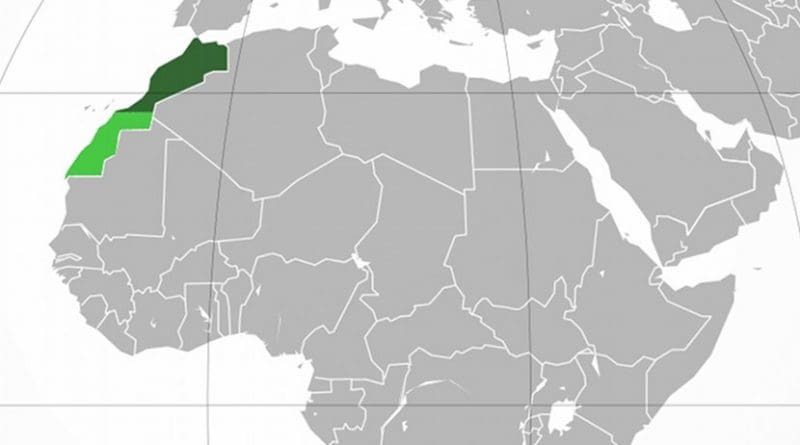FATF Removes Morocco From Its Grey List – OpEd
During its General Assembly from Feb. 20–24, 2023, in Paris, the Financial Action Task Force (FATF) made the unanimous decision to remove the Kingdom of Morocco, a North African country, from its Grey List, a choice which will boost Morocco’s image.
“The FATF decided, unanimously by its members, to remove the Kingdom of Morocco from the enhanced monitoring process, known as the Grey List, after assessing the compliance of the national system with international standards relating to the fight against money laundering and terrorist financing, since the adoption by the FATF in February 2021, of the action plan specific to the Kingdom of Morocco. This decision was taken at the FATF General Assembly, held in Paris, France, on February 20–24, 2023,” the Office of the Morocco’s Head of Government said in a statement.
This decision comes after positive conclusions contained in the group’s expert report, issued at the end of the field visit undertaken in Morocco on Jan. 16–18, 2023.
“This report, by virtue of which Morocco has been removed from the Grey List, welcomed the Kingdom’s formal political commitment to the compliance of the national system of combating money laundering and terrorist financing, with international standards, as well as the full compliance by our country with all its commitments within the set deadlines,” said the statement.
“It will strengthen Morocco’s positioning in negotiations with international financial institutions.”
The FATF was founded in 1989 as an intergovernmental organisation under the ambit of the G7. It develops policies designed to combat international money laundering. In 2001, its focus was expanded to include measures identifying and combatting the financing of regional and global terrorism. The 39-member organisation also designs and monitors due diligence frameworks intended to prevent funding of activities as diverse as the illicit arms trade, cyber fraud, and the drug trade.
The Grey List is the taskforce’s official list of countries and jurisdictions that are identified as having strategic deficiencies in their regimes to counter money laundering, terrorist financing, and proliferation financing. Unlike Black List countries, those under the Grey List actively work with the FATF to address strategic deficiencies in their regimes.
“When the FATF places a jurisdiction under increased monitoring, it means the country has committed to resolving swiftly the identified strategic deficiencies within agreed timeframes and is subject to increased monitoring,” says the FATF on its website www.fatf-gafi.org.
There are 23 countries in the FATF’s Grey List, and three countries – North Korea, Myanmar, and Iran – in its Black List. On Feb. 24, the FATF decided to remove Morocco and Cambodia from the Grey List, while adding South Africa, Nigeria, and Mozambique.
Morocco was placed in the Grey List under advanced monitoring since February 2021, despite having strengthened its legal arsenal to combat money laundering and terrorist financing.
According to the Morocco World News e-newspaper, Morocco’s place on the list was seen by many experts as controversial, especially after the Basel Institute on Governance marked Morocco’s improved efforts in combating money laundering and terrorist financing in 2021, while much of the global community saw its performance fall.
The Moroccan government has taken drastic measures to get the country’s name removed from the list. The FATF’s decision comes at a right time as Morocco plans to issue new bonds in dollars. The office of Morocco’s Head of Government Aziz Akhannouch highlighted the positive impacts of the delisting in a statement.
“(It) will positively impact the sovereign and local bank ratings in addition to improving Morocco’s image and position in negotiations with international financial institutions as well as fostering trust of foreign investors,” the Head of the Government’s statement said. It added that the FATF decision “will strengthen the confidence of foreign investors in the national economy”.
According to the Maghreb Arabe Presse (MAP) Moroccan news agency, several draft laws have been adopted and Morocco’s institutions have strengthened the mechanisms designed to prevent money laundering practices.
“Morocco’s actions have focused on a battery of legislative, organizational, awareness, and control measures, implemented by the various national authorities and institutions concerned, under the coordination of the National Financial Intelligence Authority, in partnership with legal entities subject to public or private law,” the MAP recently reported.
According to the Moroccan government’s statement, Morocco reiterates its strong commitment to continue strengthening the national system of combating money laundering and terrorist financing in accordance with the evolution of international standards in this area and stresses that this commitment now has a strategic and institutional character aimed at preserving the national financial system against the dangers of financial crimes.
The FATF’s decision is a big victory for Morocco. It provides a scathing and unappealing response to the attacks hatched by those within the European Parliament who are trying, without much success, to mark Morocco as a rogue state.
Morocco’s exit from the Grey List and South Africa’s entry to the list is an interesting development. South Africa is well-known for supporting the terrorist and separatist armed group, Polisario, which has been fighting against Morocco. South Africa should be realistic in dealing with terror groups and financing. Its inclusion into the list will damage its reputation and incur financial losses.
It is a clear recognition and acceptance by the FATF that Morocco has adopted the highest standards in its fight against money laundering and the financing of terrorism. It is also a befitting reply to some of the French media who have made Morocco-bashing an editorial line of conduct in the service of occult designs from another era.
Overall, the FATF’s decision to remove Morocco from its Grey List is welcoming news and will boost Morocco’s image in the world.
Veeramalla Anjaiah is a Jakarta-based senior journalist and author of the book “Azerbaijan Seen from Indonesia”.

